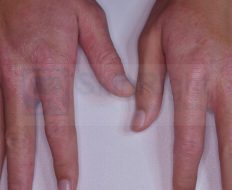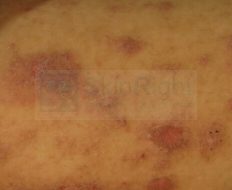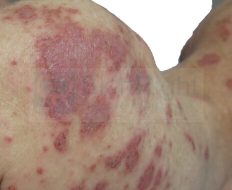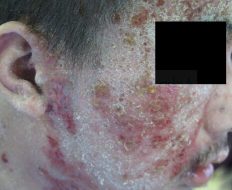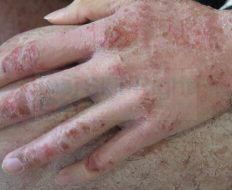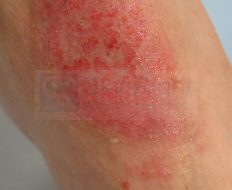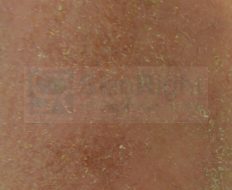SKIN PROBLEMS/
Eczema / Dermatitis
Understanding Eczema: Overview, Symptoms, And Latest Advanced Treatment
Eczema, also known as atopic dermatitis, is a chronic skin condition that can cause significant discomfort and affect quality of life. One of the primary characteristics of eczema is itchy skin. It can be particularly distressing, leading to sleep disturbances and a significant impact on daily activities.
Another common symptom is redness, which occurs as a result of increased blood flow to the affected areas due to skin inflammation. Eczema often presents as patches on the skin, characterized by dryness, flakiness, or a leathery appearance. These patches can appear anywhere on the body but are frequently found on the face, hands, elbows, and knees.
Understanding these symptoms is critical for managing eczema, as effective treatment plans typically aim to alleviate these discomforts, reduce inflammation, and restore the skin’s barrier function to prevent flare-ups and maintain healthier skin over time.
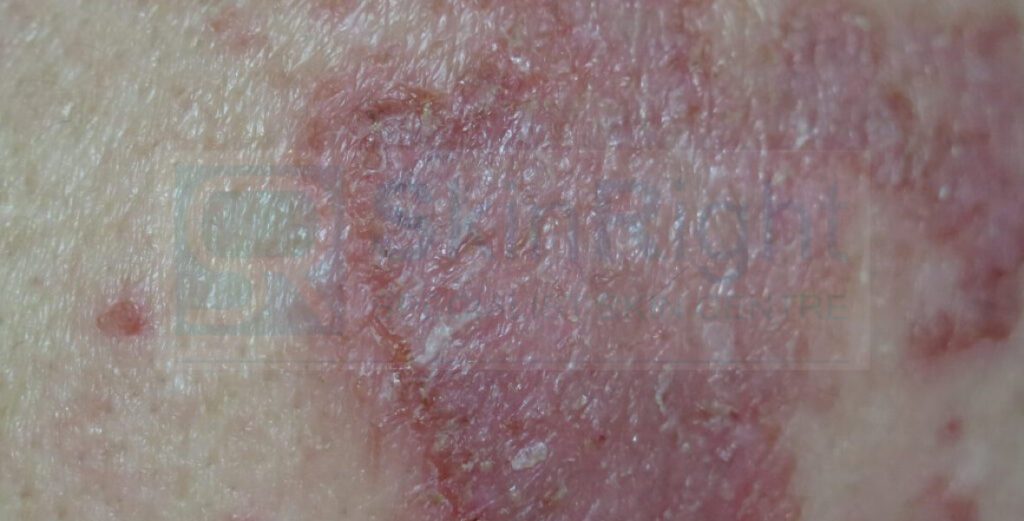
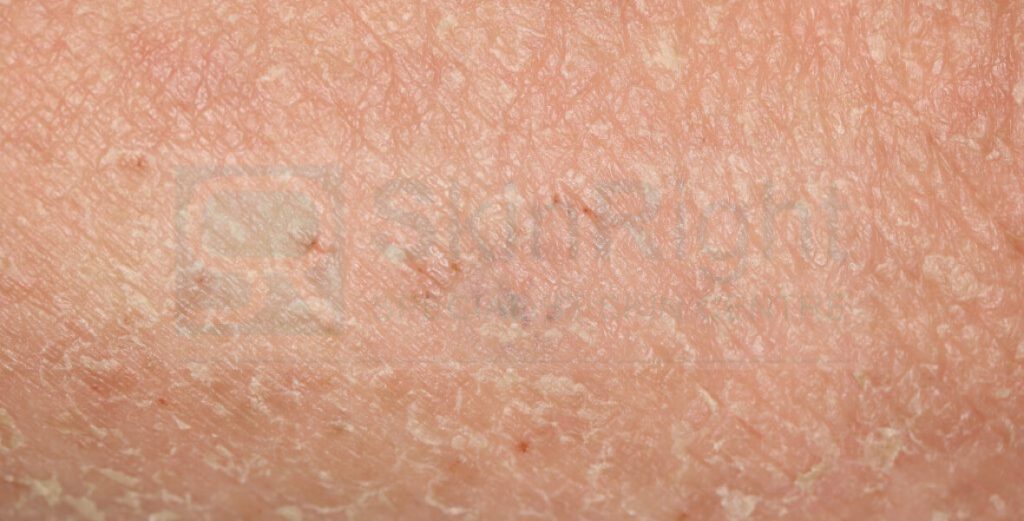
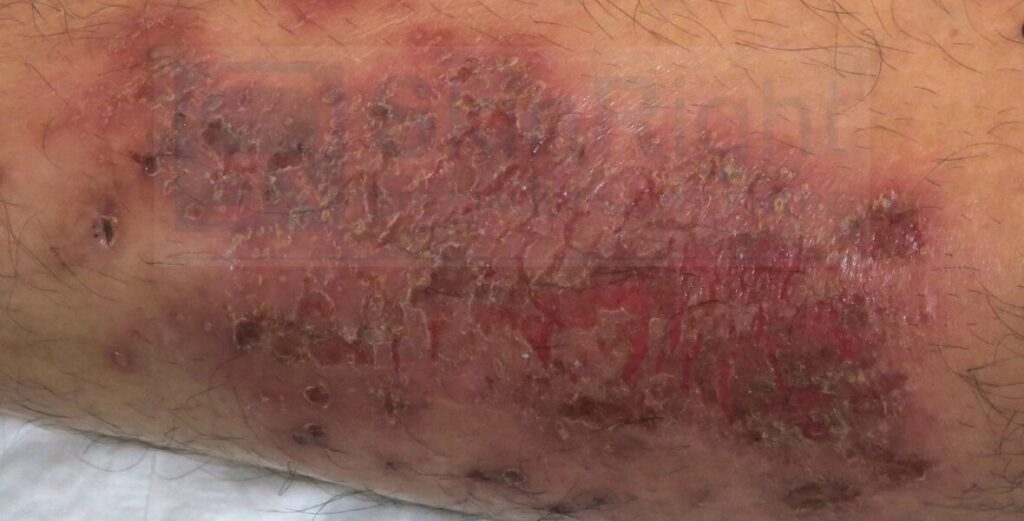
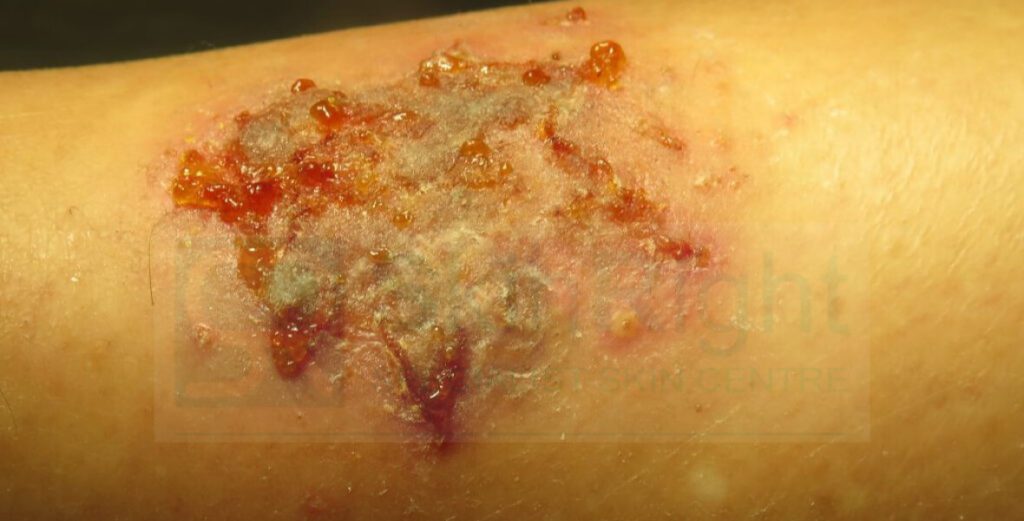
Causes And Triggers Of Eczema Immune System, Eczema Triggers, Allergens, Environmental Factors, Irritants
Eczema, a chronic skin condition characterized by inflamed, itchy, and red patches of skin, is primarily driven by an overactive immune system that responds inappropriately to perceived threats. This misguided immune response leads to inflammation, which manifests as the symptoms commonly associated with eczema. A variety of triggers can exacerbate this reaction, often varying from person to person, making individual management crucial.
- Primary triggers for eczema include allergens such as:
- Pollen
- Pet dander
- Dust mites
- Certain foods
These allergens can cause the immune system to kick into overdrive, producing the characteristic itching and inflammation.
- Environmental factors also contribute to eczema exacerbation:
- Changes in weather (e.g., cold, dry air or high humidity)
- Low Humidity
- Irritants contributing to eczema outbreaks include:
- Detergents
- Soaps
- Perfumes
- Synthetic fabrics
These substances can strip the skin of natural oils or cause irritation, prompting an immune reaction. Stress, though not a direct cause, can aggravate symptoms as it may trigger or worsen an immune response.
Understanding these various contributors is vital for managing eczema, emphasizing the importance of identifying individual triggers and maintaining a supportive skin care routine to minimize flare-ups.
Related Video
Managing Flare-Ups And Chronic Condition Flare-Ups, Chronic Condition, Lifestyle Changes, Bathing Habits
Managing flare-ups and chronic conditions like eczema involves a multifaceted approach that integrates lifestyle changes, adjustments in bathing habits, and a focus on maintaining skin health. Identifying and minimizing exposure to triggers such as stress, allergens, and irritants is crucial.
Lifestyle changes play a significant role in managing eczema symptoms. Implementing a balanced diet rich in anti-inflammatory foods, ensuring adequate hydration, and getting sufficient sleep can bolster the body’s natural defenses.
Bathing habits are crucial for controlling eczema.
- Frequent and lengthy hot showers or baths can:
- Strip skin of natural oils
- Exacerbate dryness and irritation
- Recommended bathing practices:
- Take short, lukewarm showers or baths
- Use gentle, fragrance-free cleansers
- Post-bathing tips:
- Gently pat the skin dry
- Apply a thick, emollient-rich moisturizer while skin is slightly damp to lock in moisture
Consistency in these practices not only alleviates immediate discomfort but also helps in long-term management, reducing the frequency and severity of eczema flare-ups, leading to an improved quality of life.
Related Video
Treatment Options For Eczema Moisturizers, Corticosteroids, Topical Treatments, Antihistamines, Dupilumab
Treatment options for eczema aim to alleviate symptoms, reduce inflammation, and prevent flare-ups. Moisturizers play a vital role in managing eczema by maintaining skin hydration and reinforcing the skin barrier. Applying them frequently, especially after bathing, helps to retain moisture in the skin, which can reduce itchiness and prevent cracking.
Corticosteroids are commonly used to control inflammation and itchiness during flare-ups.These are available in various strengths, from mild to stronger prescriptions, and should be used as directed by doctors to avoid potential side effects such as skin thinning.
Topical treatments may also include non-steroidal options like calcineurin inhibitors, which help to suppress the immune response in the skin with a reduced risk of long-term side effects. Antihistamines are often recommended to alleviate itching, especially at night, helping patients to achieve more restful sleep. For more severe cases, newer biologic treatments, such as dupilumab, work by targeting specific pathways in the immune system to reduce inflammation and are usually considered when other treatments have failed.
Related Video
Prevention And Care Tips Skin Barrier, Emollients, Bleach Baths, Dry Skin
Preventing and caring for eczema involves a comprehensive approach focused on maintaining the skin barrier and managing symptoms effectively. The skin barrier acts as a protective layer, and damage to it can exacerbate eczema flare-ups. To support and protect this barrier, it’s important to keep the skin well-moisturized. Emollients are crucial in eczema care; these moisturizing treatments help retain moisture and create a protective film over the skin.
Applying emollients regularly, especially after bathing, can prevent the skin from drying out and becoming irritated. In addition to emollients, incorporating bleach baths into your routine may be beneficial. These baths, when prepared with diluted household bleach, can help reduce bacteria on the skin, minimizing infection risks that often accompany eczema. It is essential, however, to consult with a healthcare professional before trying bleach baths as part of your regimen.
Managing dry skin is another critical component of eczema care, as dry skin can trigger and worsen symptoms. Staying hydrated, avoiding hot showers, and using gentle, fragrance-free products can help maintain skin moisture. Humidifiers can also be useful in adding moisture to the air, thereby reducing skin dryness. By employing these strategies, individuals with eczema can improve their skin’s resilience and reduce the frequency and severity of flare-ups.
Related Video
Related Videos
Existing patient information
Please Contact Us for Password @ 26111006
如果你要將以下嘅內容隱藏,可以在Inner section的Advanced tab裏面的CSS ID欄位上填上 hiddenSection
Eczema Knowledge
Other skin concerns
Hidden Content
Hidden content

